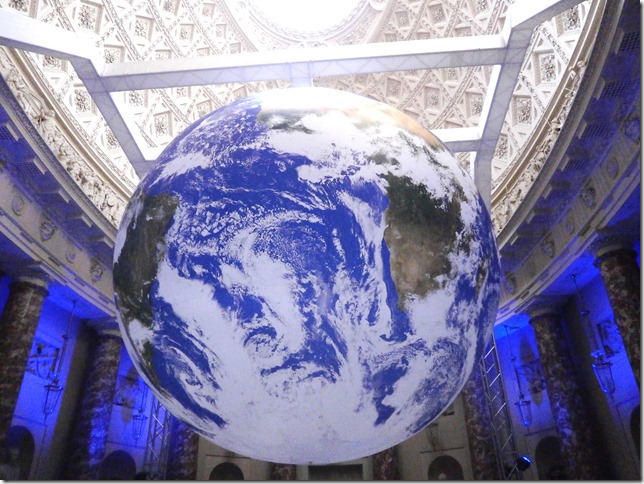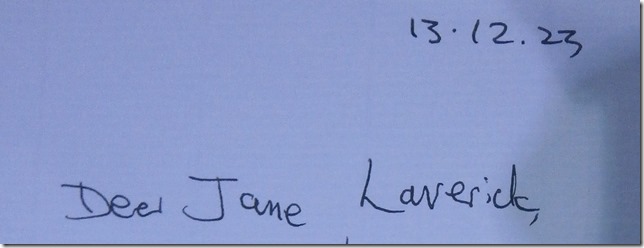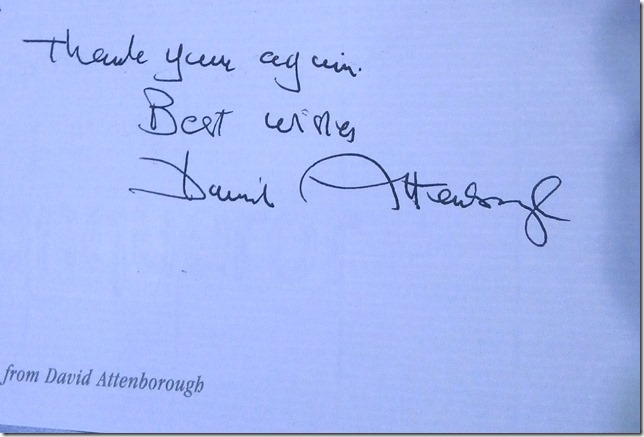Though not all of them. Fame is a tricky monkey, it can turn on famous people and claw them so badly that you cannot see them ever again without the scars. It can lean down from the lofty heights it inhabits and peck the famous so full of holes that they become insubstantial and blow away on the breeze. The murmurings of its silken susurrations can slide people into poisonous acts with ease.
There are a few, very few who have walked the tightrope and never for a moment wobbled because their eyes are not fixed on the fame, they ignore the fame because they have a purpose to which they hold no matter where the fame takes them.
Earlier this year the OH and I went to see the Gaia exhibition at Stowe school.
This remarkable artwork by Luke Jerram is a balloon 7 metres round the equator covered in photographs taken by NASA. It is almost 2 million times smaller than the real thing but revolves suspended by a gantry.
We went during the week in the daytime, other visitors were therefore mostly retired people like us. Visitors were clearly moved by the display, took photographs and talked very quietly. Everyone I overheard was praising the exhibit but instantly following the praise up with a comment on how we need to take care of the Earth. Our group followed a group of junior schoolchildren, who, interestingly, emerged from the room saying very similar things.
Gaia, the exhibition, is touring the world, if you get the chance it is worth going to see. In my opinion this is art doing the job it is meant to do. I think it would be difficult to see this for yourself and not be moved. You may have the same feelings as we did.
I was a child in the 1950s. In the first house I remember well, there was a rifle in the downstairs coat cupboard in the hall, just leaning against the wall. On the floor of the lounge was Bertie Adams. Bertie Adams was a leopard skin rug complete with stuffed head in a fierce expression and a red suede tongue, which I think was probably Bertie Adams’ own tongue. He was called Bertie Adams because I proved to be quick with language from a very young age. One day my father tripped over the head and started to swear.. ‘Oh that damn..’ and then, aware of my big and interested toddler ears.. ‘Bertie Adams.’ I loved Bertie Adams and was sad when my father opened his retirement antique shop and sold Bertie Adams (to people who weren’t even his family. And probably didn’t stroke his nose or talk to him much, if at all.)
In the next house my father was delighted to collect a set of The Boys’ Own Paper Annuals. These were the epitome of his very Edwardian boyhood (despite him being born in 1919) that held the Great White Hunter as the very summit of manhood and extreme bravery, with guns, in sourceless crocodile infested rivers, or against enormous beasts of one kind or another on endless plains, as the archetype of What A Man Should Be.
There were miniature Indian pictures painted on ivory, there was scrimshaw on walrus teeth, there was quite a lot of snakeskin. I grew up with collected items almost in direct line from the seventeenth century gentlemen collectors who were the first in the western world to have cabinets made with many drawers to house their wonderful treasures and withdraw them to display to other gentlemen collectors after dinner.
If you are reading this now, I’m willing to bet you would not be happy to show a drawerful of parts of rare dead animals to friends, which you might well have been delighted to do just sixty years ago.
What, or rather who, changed your mind?
Another regular feature of the 1950s for me was staying with my grandmother overnight and going to Church on Sunday with her. Sometimes when I was staying we watched a wonderful programme called Zoo Quest. In this, a glamorous and gangling young man lolloped around a variety of tropical beaches and far flung places gathering, alive, a variety of animals to transport back to London Zoo, via the studio, where they could be discussed and admired and salient points about the nature of the beast and its lifestyle could be made. From the first programmes my grandmother and I watched, the utter enchantment of the young presenter with his captives was apparent. His rapport with his subjects was as impressive as his knowledge, he had clearly done his homework. Interestingly the animals always seemed to know that he was on their side, they obviously loved him, and so did we. The name of the young presenter was David Attenborough.
By the Sixties collecting for zoos, and indeed zoos themselves were no longer looked upon in the same way. The young presenter had such success he vanished behind the scenes, becoming controller of BBC Two, in the process rescuing it from a trajectory straight into boredom with some very interesting programming. He commissioned Monty Python’s Flying Circus and deserves a medal for that alone, in my opinion. He didn’t stay long behind the scenes, he is probably the most well travelled natural history presenter on the planet, in the course of it all collecting 32 honorary degrees.
He is one of the most famous people you’ll ever know, known in many countries round the world. His Planet Earth, Blue Planet, Life on Earth and numerous natural history programmes showing us, teaching us, educating us and entertaining us for seven decades. If you put his name in any search engine you will find pages and pages about him. If you put his name into the books search engine of the Big River retailer you will find almost as many books about him as by him.
One of the most famous people on the planet, is David Attenborough and he has never put a foot wrong. He hasn’t just been in tune with changing times, he has changed them. My grandchildren would be as deeply unhappy with a rifle in the cloakroom as they are with any animal who isn’t alive and perky and where nature intended it to be. He has changed attitudes in a complete volte face in three generations in my family. What changes has he wrought in the way you think?
The OH and I finished watching the latest amazing tour de force in the shape of Planet Earth 3, as always fascinated, uplifted and educated, and I wondered if anyone had bothered to say ‘thank you’. I know he has honours and titles and fans and followers, but does anyone ever say ‘thank you’?
When I was writing for hobby magazines, there was a saying, ‘Jane will do it.’ If you are good at something an expectation grows that you will be better next time and that you can always deliver. No body ever thanked me, they just waited to see what I’d do next.
So I wrote to David Attenborough. I wrote an old fashioned hand written letter just to say thank you. I thanked him for all those years of never being boring (I don’t think he knows how.) I thanked him for never straying from the principles on which the BBC was founded, to educate, entertain and inform. I thanked him for the changes in my life and in the attitudes of those around me that he had made by putting in the work, doing the homework, keeping up standards and never deviating from his purpose.
I posted my letter a fortnight before Christmas and thought that was it.
And then
he wrote back!
I was surprised but I should not have been. I am not going to publish the letter here, it was from him to me. I will tell you he thanked me for writing and was delighted I had enjoyed his work.
Let us now praise famous men. I did because just being famous doesn’t mean necessarily that anyone bothers to say thank you. I do thank him. I can’t imagine people would have left the Gaia exhibition saying what they did if it hadn’t been for him.
It’s not just me, of course. I think the entire planet thanks him, including all the species named after him. If we manage to turn the destruction of the planet around in time to save many species and habitats on the edge it will be due in no small part to his efforts.
What a wonderful thing to do with your life! To be so enchanted with the wonderful world and all in nature that is on it that that you wish to save it and can communicate your desire so well that everyone else thinks that’s a good idea too.
I am very glad to have been alive during the time that David Attenborough has been broadcasting, writing, talking, directing, controlling, educating and entertaining. I consider myself to be the very grateful beneficiary of his thought processes and as he has lovely manners too I’m glad I wrote to say thank you.
And he has never, ever been boring. How on earth do you manage that? I don’t know, we’ll all have to watch and learn.
Next up on the BBC 8pm January 1st: Attenborough and the Giant Sea Monster. And it’s real. The chap hasn’t the faintest idea of how to be boring, not a clue.
~~~~~~~~~~~~~~~~~~~~~~~~~~~~~



